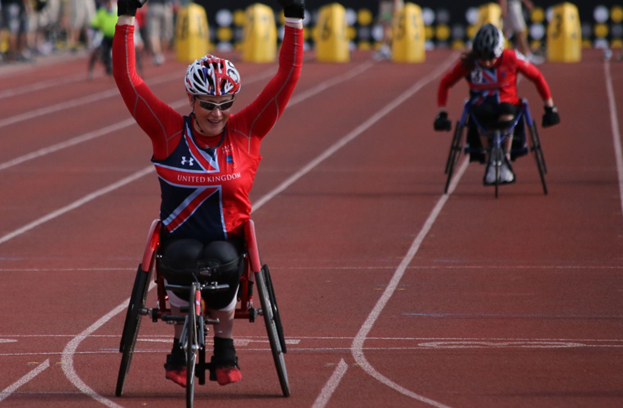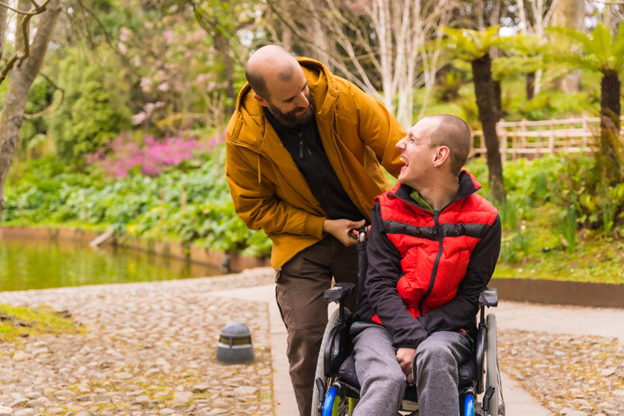
Introduction
Supporting individuals with disabilities to live independently and actively participate in their communities is a fundamental goal of the National Disability Insurance Scheme (NDIS). One of the key supports provided by the NDIS is Supported Independent Living (SIL), which aims to empower individuals with disabilities to lead fulfilling lives while promoting autonomy and inclusion. In this blog, we will explore the concept of SIL, its importance, and how it contributes to the overall NDIS scheme. We will also discuss the key components of SIL, the process of choosing the right SIL provider, navigating the application process, and maximizing the benefits of SIL for individuals seeking greater independence and community engagement.
What is Supported Independent Living (SIL)?
Supported Independent Living (SIL) is a specialized support service that assists individuals with disabilities in living independently and participating in their communities. SIL recognizes the inherent value of autonomy and the right of individuals to make choices about their lives. By providing the necessary supports and accommodations, SIL enhances the quality of life for individuals with disabilities, fostering a sense of control, self-determination, and overall well-being.
While the NDIS offers various supports and services, SIL stands out for its specific focus on promoting independent living. Unlike other supports such as Home and Community Care (HACC) or Residential Aged Care, SIL caters specifically to individuals with disabilities and their unique needs. SIL provides a holistic approach that encompasses housing accommodation, daily living assistance, skill development, and access to specialized disability services, all aimed at maximizing independence and community participation.
How NDIS Sustains Supported Independent Living (SIL)
The NDIS is committed to empowering individuals with disabilities to live independently and exercise choice and control over their lives. As part of this commitment, the NDIS provides funding and support for SIL to enable individuals to access the necessary services and accommodations to live independently. By embracing the principles of choice and control, the NDIS ensures that individuals have the freedom to determine the supports they need and the providers they prefer.
SIL plays a vital role within the NDIS scheme as a key support that enables individuals with disabilities to achieve their goals of independent living and community participation. SIL supports individuals by providing the necessary assistance, accommodations, and services tailored to their specific needs. It is designed to promote individual choice, control, and self-determination, empowering participants to live the life they desire.

The Key Components of Supported Independent Living (SIL)
One of the core components of SIL is ensuring suitable housing accommodation and providing tenancy supports. This includes assistance in finding appropriate housing options, support in securing tenancy agreements, and maintaining a safe and accessible living environment. SIL helps individuals with disabilities to establish and maintain their own homes, fostering a sense of stability and security.
SIL encompasses comprehensive assistance with daily living activities and personal care services. It covers a wide range of supports, including but not limited to meal preparation, personal hygiene, household chores, and medication management. These services are tailored to the individual’s needs and preferences, ensuring they can carry out daily activities independently and with dignity.
SIL recognizes the importance of skill development and training to enhance independence. It offers various programs and supports to help individuals acquire or improve essential life skills. These may include budgeting, cooking, using public transportation, managing personal safety, and other skills necessary for independent living. Skill development programs are tailored to the individual’s goals and abilities, empowering them to become more self-reliant.
Individuals may require specialized supports and services based on their unique needs. It facilitates access to a range of specialist disability services, including allied health services, therapy, assistive technology, and any other supports required to promote independence and well-being. By providing access to these specialized services, SIL ensures that individuals receive the support they need to overcome specific challenges and thrive in their daily lives.
Choosing the Right SIL Provider

SIL providers play a crucial role in delivering the necessary supports and services to individuals with disabilities. They are responsible for assisting participants in achieving their goals of independent living and community engagement. SIL providers work collaboratively with individuals, respecting their choices, and ensuring their unique needs and preferences are met. They are committed to person-centered care and promoting the well-being of the participants they serve.
Choosing the right SIL provider is essential for receiving high-quality and personalized support. Some factors to consider include the provider’s reputation and experience in the disability sector, the qualifications and expertise of their staff, the flexibility of their services, and their alignment with the participant’s goals and values. It is important to conduct thorough research, seek recommendations, and evaluate potential providers based on their ability to meet the individual’s specific needs.
When evaluating SIL provider options, it is helpful to consider several factors. These may include reviewing testimonials or feedback from other participants, assessing the provider’s responsiveness and communication style, and scheduling initial meetings or interviews to discuss the participant’s needs and expectations. It is also important to inquire about the provider’s approach to individualized support, service delivery models, and how they involve participants in decision-making processes.
Collaboration between participants and SIL providers is key to achieving the desired outcomes. Open communication and active involvement in the planning process contribute to developing personalized support plans that meet the participant's specific goals and preferences. Participants should advocate for their preferences and actively engage in ongoing feedback and discussions with their chosen SIL provider to ensure the supports provided align with their evolving needs.
Navigating the SIL Application Process
The process of applying for SIL can be complicated, but understanding its various stages can simplify the journey. It involves several important steps that individuals need to follow to access SIL supports effectively. First, gathering necessary documentation is crucial as it provides the required information to support the application.
Engaging with support coordinators or local area coordinators is another essential aspect, as they can provide guidance and assistance throughout the process. Collaborating with them ensures a smoother application experience. Developing a person-centered plan is a pivotal step that should not be overlooked. This plan reflects the participant’s goals, aspirations, and support needs, forming the foundation for tailored SIL supports.
Support coordinators or local area coordinators play a crucial role in guiding individuals through the SIL application process. They provide support and assistance in understanding the requirements, gathering the necessary information, and connecting participants with appropriate SIL providers. They work closely with participants to ensure their needs are properly addressed, and they navigate the application process effectively.
SIL is designed to empower individuals with disabilities, allowing them to take control of their lives. Through tailored support for daily activities, skill development, and community participation, SIL fosters autonomy and independence. It enables participants to actively engage in decision-making and express their preferences, promoting a sense of empowerment and self-determination.
Maximizing the benefits of SIL involves setting personal goals and actively working towards them. By establishing meaningful goals, participants gain direction and motivation. SIL supports can assist in acquiring new skills, pursuing education or employment opportunities, and enhancing social connections. By breaking goals into manageable steps and tracking progress, participants can effectively utilize SIL to develop essential life skills and experience personal growth.
Regular evaluation and adjustment of SIL supports are essential to ensure their ongoing relevance and effectiveness. Maintaining open communication with the SIL provider facilitates reviews that assess progress, identify areas for improvement, and explore new opportunities. By actively engaging in the evaluation process and providing feedback, participants can optimize their SIL experience and ensure that their supports continue to meet their evolving needs. Adjustments may involve modifying assistance levels or accessing specialized services, ensuring personalized and effective support for long-term independence.





